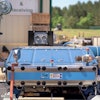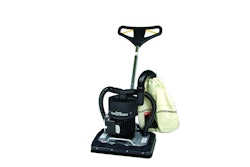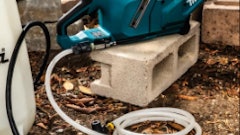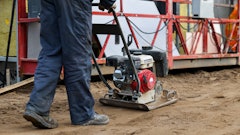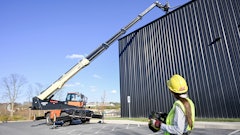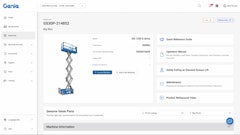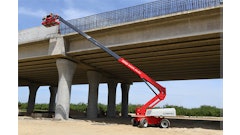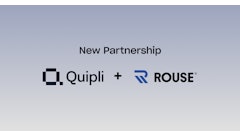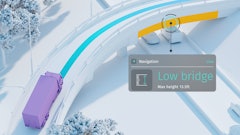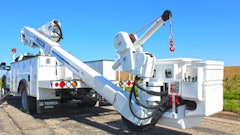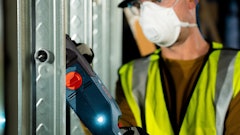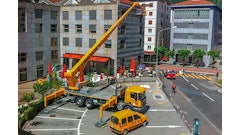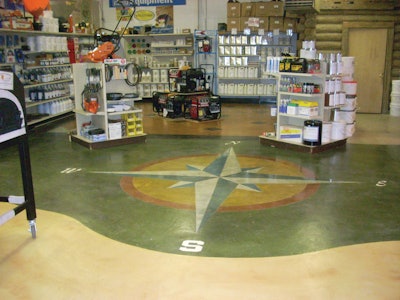
The Rental Branch started selling and renting decorative concrete products eight years ago. Today, the St. Joseph, MI rental house features a decorative concrete showroom, and is in the midst of physically separating it from its core rental operation. “I guess the showroom was so successful that we started to have an identity crisis,” says store owner Mike Branch. “Customers would ask, ‘Do you still rent stuff here?’ So now, the showroom will be just a showroom that sells decorative concrete products, rents stamps, and offers training classes.”
Not every rental operator will make the commitment that Branch has or be willing to take the time to grow the business. As he admits, “At this point, decorative concrete is not a big part of our business. It’s still a risk, but we know there are opportunities and my chips are in.”
The industry has been gaining momentum over the past decade. Homeowners, municipalities, and commercial designers are embracing decorative concrete for its durability, ease of maintenance and visual appeal. Always in the market for new opportunities, contractors have picked up on the trend by offering products and services to satisfy the growing demand.
The market spells opportunity for rental houses. Equipment and products are specialized -- and in many cases, costly – so it pays to rent from both a DIYer's and contractor’s perspective. And it’s fairly broad based, encompassing everything from decorative stained and stamped floors and concrete countertops to overlays, epoxy flooring and polished concrete.
“One of the best things about getting into the decorative concrete business is that it complements what most rental stores already rent, including pressure washers, floor grinders, and vacuums,” explains Branch. “Now if they can expand the market for these rental items and then sell stains, dyes, sealers and other decorative concrete products to go with them, not only has the number of transactions increased, but so has the transaction size.”
Pick and choose
As mentioned, the Rental Branch is a bit unusual having a dedicated showroom, one that showcases a full spectrum of decorative concrete products and services. In addition to a full line of products, it also displays samples of stamped and stained concrete, vertical carved concrete, concrete countertops, and other products and effects to catch the customer’s eyes.
Bledsoe Rentals in Lee’s Summit, MO and Olathe, KS, took a different approach five years ago. “We saw that decorative concrete, especially polished concrete floors, was being specified for new construction and to renovate older homes,” relates Adam Fouts, vice president of the company. “They are durable with extremely low maintenance, and they hold esthetic appeal.”
To gain entry into the market, Fouts started building relationships with industry manufacturers and reaching out to his contractor customers. Today, he is a distributor for Lavina floor polishers and rents them, along with other flooring equipment such as ride-on scrapers, dump trailers, scrubbers and large HEPA vacuums, to his contractor customers.
His store doesn’t leave DIYers out of the mix either. “Homeowners want to epoxy garage floors and dye basement floors,” he adds. “We rent tooling to them and teach them how to stain and use the equipment.”
Being proactive
When entering a new market, Bledsoe Sales Manager James Todd emphasizes that sitting back waiting for orders won’t suffice. “We constantly talk to our contractor customers and architects to find out what types of services they want, and we have a sales team in the field visiting with them on site. Contractors are always looking for new revenue sources and new business opportunities. Forming partnerships with them is a win-win for both parties.”
Involvement is key, too, he adds. “Being in the decorative concrete/floor polishing business isn’t the traditional rental situation; every floor is different. Giving the right advice, being able to answer your customers’ questions and -- equally important -- having counter people who know what questions to ask of them, are requisites to success. When you can help customers and help them avoid a costly mistake, they become customers for life.”
Aaron Caito, online sales and marketing director for Runyon Equipment Rental in Carmel, IN agrees. “Part of our success comes from staying involved with the customers all the way through a project, helping them avoid common pitfalls.” Like Bledsoe, the store’s decorative concrete focus is manipulating the floor surface with treatments, dyes, different chemicals and systems.
Runyon Equipment Rental also has a division, Runyon Surface Prep, which is dedicated to concrete and surface prep supply. “It is a big focus for us," says Caito, “and we’ve seen a lot of activity. For particularly tough jobs, we will arrive on site to help our clients get the right mix of products.
“I think one challenge for rental stores is being able to carry the range of products needed by contractors. Another is having the knowledge base to successfully sell the product. In our case it helps to have salespeople who have been actively involved in the industry. We also hold workshops for our contractor customers that give them hands-on experience prepping floors, pouring the concrete and polishing it.”
Jeff Barlette, owner of Upstate Increte in Rochester, NY, says small rental houses can get involved in the industry, but it can get expensive for them. Promoted as the one-stop-shop for decorative concrete tools, chemicals and training, the store features a decorative concrete showroom with samples and also offers hands-on workshops.
“The investment needed for equipment and media (e.g., tooling) is fairly substantial in the beginning and for each rental,” Barlette explains. “In addition, because every piece of concrete is different, each piece of tooling must be different. Using the wrong media on concrete can be costly for the rental company. For example, if a rental customer uses the wrong media on hard concrete, the customer could burn up a set of diamond blades that cost hundreds of dollars.
“An inexperienced customer may blame the rental house for supplying the wrong equipment for the job, and this is only one job," Barlette says. "When a customer wants to remove coatings, paints and so forth, another set of tooling would be needed.”
As Barlette and Caito point out, before renting this type of equipment, a rental house needs to be knowledgeable about the machines and the media.
Start up tips
When the Rental Branch started selling and renting decorative concrete products in 2004, the store retained a former Redi Mix employee who traveled to jobsites with tools and actually rented to contractors he knew. The business evolved from there. Training classes followed as did a complete renovation that resulted in a special showroom.
“I hesitated at first getting into the market because I thought the tools might get beat up or would be returned full of concrete, but it didn’t happen that way,” says Branch. “Release agents are effective at cleaning up tools, and customers know in advance it’s their responsibility to bring them back clean.
“Even though decorative concrete work isn’t rocket science, there’s still a learning curve and providing customer training is important. In fact, training, especially to contractors, remains one of our biggest challenges. They tell us that training either costs too much or the timing isn’t right. In other words, they don’t have time to train in the summer and money is scarce in the winter.”
Branch notes that another challenge is simply dealing with a young industry and the subsequent lack of field experience. “A homeowner came in recently and wanted to rent one stamp. I told him he needed more than one, but he insisted and refused to view a training tape. The next day, he returned the stamp and wanted his money back.”
Keeping up with trends offers another challenge for rental dealers, adds Fouts. “Before you can train customers your counter people have to be knowledgeable, and it seems the industry is changing daily with new products and approaches. Having a good support team from your distributors and manufacturers is also critical for your store’s success and that of your customers. Customer loyalty will be fleeting if your supplier won’t back you up or fails to offer timely answers to customer questions.”
The two owners offer a couple of other tips. Fouts’ store offers rental kits to customers looking to enhance a garage or basement floor. The kit includes a vacuum, diamond tooling, a polisher, and, if necessary, a generator. The store offers a similar kit for contractors, but sells them diamond tooling instead of renting it because their equipment gets more use. He notes, too, that decorative concrete countertops are also gaining in popularity, creating a market for smaller polishers.
Branch often packages together products and rental sales. If customers buy colors and sealer from the store, they will get a discount on equipment rental. “This is one way to combat big box and Internet sales,” says Branch. “We’ve also transitioned to selling powered color. Liquid color just seemed to get a little messy. Now, by stocking only six different base colors in 10-pound bags, we can offer customers 24 different colors.”
It always pays to know who your best customers are. Fouts, for example, notes that finish carpenters and painters, those contractors who are exceptional at detail work, could become your next decorative concrete customer. It’s not always the concrete contractor who comes through your door looking for products and solutions.
Whoever walks through your door -- general contractor or concrete contractor, finish carpenter or painter, even a DIYer -- they need to know you’re in the business of renting equipment and selling products to the decorative concrete market. Just like renting a cut-off saw, pole pruner, trailer or other more traditional rental equipment, upfront instruction is a requisite. But so to is having the knowledge base to help customers turn ordinary cement into decorative concrete opportunities.


